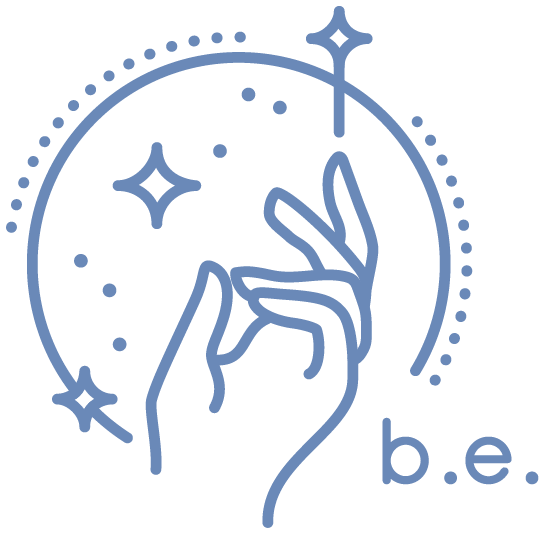Three Free Things That Improve Your Wellness More Than Anything You Can Buy
In 2019, the global beauty industry was a $532 billion business globally. The healthcare industry in 2018 was worth $8.45 trillion. These two industries alone represent significant contributors to the overall global economy, and because of that, significant time and money is spent studying how and why individuals make decisions on how they spend money on health and beauty.
When it comes to choice, the options are truly limitless. What is so often overlooked though are the completely free things that we can do everyday to make the biggest impact on both wellness. The amount of sleep we get, drinking enough water, and the way we breathe have some of the biggest impacts on our wellness. Even more so than a $300 eye cream or a rainbow inspired collection of supplements. In this post we’ll look at how each of these categories impact our wellness, and a couple tricks to set you up for improving your relationship to each of those categories.
Sleep
We’ll start with sleep; between sleep and water if you aren’t getting enough of either of these, you’ll find yourself up a creek without a paddle pretty quickly. A lack of sufficient sleep very quickly impacts every aspect of the body, from digestion all the way up to your mental health.
As a general overview, sleep is our brain and body’s way of resting and resetting. Just because we are not active and alert, does not mean that our body and brain are not busy while we sleep. Many different processes take place when we are asleep, some of which include:
A general decrease in sympathetic nervous system activity. The sympathetic nervous system is responsible for our “fight or flight” responses. Sleep deprivation is related to an increase in sympathetic nervous system activity in the body, which has been linked to an increase of blood pressure in the body. This has caused some scientists to study the correlation between sleep deprivation and an increased frequency in heart disease.
During sleep the body releases the hormone melatonin which helps facilitate sleep. Cortisol, another hormone in the body, decreases during sleep. Even though it has several crucial functions in the body, cortisol is commonly thought of as the “stress hormone”. If the body is not getting enough sleep, cortisol levels in the body can remain elevated for longer than necessary. Prolonged elevated levels of cortisol in the body have been associated with elevated blood pressure, weight gain, irritability, and more.
Sleep also impacts areas of the body that are related to emotional regulation and stability. The impacted areas of the brain include the amygdala, the hippocampus, and the medial prefrontal cortex. A lack of sufficient sleep can make it difficult to emotionally regulate during the waking hours.
Hormones that impact our sense of hunger and fullness are also affected by sleep. During sleep, the hormone ghrelin (helps us feel hungry) decreases, and the hormon leptin (tells us when we are full) increases. Disruption of sleep cycles can impact levels of ghrelin and leptin in the body, resulting in weight gain.
During sleep the body releases proteins known as cytokines. Cytokines are responsible for fighting off infections, and decreasing inflammation in the body. A lack of sleep diminishes the body’s ability to fight off infection, which can result in increased frequency of sickness, and long term inflammation in the body.
Muscle tissue growth and repair occur during sleep. By releasing growth hormones during sleep the body is able to repair damage that occurs during the day (especially if we are staying physically active). Shorter nights of sleep impair the body’s ability to repair and regenerate tissue.
These are just a few of the processes that take place in the body during sleep, but it can be seen how many systems of the body are implicated during sleep, and what kind of impact a lack of sleep can have on the body. So even if we have a perfect diet and exercise routine, missing out on those crucial z’s can set us back in significant ways.
There are so many books and articles out there that talk about how best to cultivate a better relationship with sleep, so it may be more sensible to leave you and Google to find the things that work for you. But, I promised tips and tricks, so I intend to deliver. A great starting place for improving sleep would include the following:
Stick to a schedule. The body thrives on routine, and will thank you for a more predictable nighttime schedule.
Make sure your room is an ideal sleeping environment: cool, dark, and quiet. And change your sheets regularly. Cause...ewww.
Move regularly. Incorporating movement throughout the day can help the body sleep more restfully.
Put. Your. Phone. Down. Between the blue light and the mental stimulation around scrolling through social media or doom scrolling the news, getting ready for bed should include the all important wind down time.
Water
Water. Our bodies are approximately 70% water. When dehydrated we experience a cascade of negative health impacts. The human body can survive on average for 3 days without water. The body can go weeks without food if water is taken care of. Water serves many critical functions in the body such as: regulating body temperature, protecting and lubricating tissues, facilitating waste excretion, aiding in digestion, and fighting off infections. Without a sufficient amount of hydration there is no health and wellness routine we can do that can counteract the effects of not drinking enough water.
So what kinds of symptoms can happen from not drinking enough water? So glad you asked.
Low Blood Pressure
Weight Gain
Fatigue
Constipation
Headaches
Dull, Dry Skin
Muscle Cramps
Maintaining healthy levels of hydration is crucial within the body, and though this is a simple, easy thing we can do to maintain our health and wellness, it can be challenging to achieve appropriate hydration levels. General recommendation is to drink “half your bodyweight in ounces”. So if you weigh 160 lbs, your minimum daily fluid intake should be 80 ounces. If drinking enough water throughout the day is something you struggle with, here are a couple simple things you can do to increase your water intake throughout the day:
Start with one giant container in the morning, and don’t stop till you reach the bottom.
Remember to bring a reusable container with you throughout the day that you can fill up.
Spice up your water with the addition of fresh fruits and veggies, to keep the flavor interesting without adding extra sugars.
If you’re into tech, try an app. Because of course...there’s an app for that.
Breathe
If staying hydrated is crucial to human life, then breathing is even more so. Life without breath lasts minutes, not days. Because breathing is a part of the autonomic nervous system (we do it without thinking), and life giving air surrounds us, breath as a part of one’s wellness routine is easy to overlook. But with just a little effort and conscious thought, we can have a tremendous impact on our wellbeing.
Much of this ties back to the vagus nerve and the parasympathetic and sympathetic nervous systems. Without geeking out too terribly hard, I want to point out here: the way the vagus nerve and the breath interact with each other is so freaking cool. It’s so cool in fact, that I will have another blog post specifically dedicated to the vagus nerve. For now though, here are the key facts to know:
The vagus nerve is the longest nerve of the autonomic nervous system
It facilitates parasympathetic states (rest and restore) most organ function
It aids in crucial functions including heart rate, digestion, blood pressure, and sweating
Helps manage inflammation within the body
Anatomically, the vagus nerve passes into the abdomen through the esophageal hiatus in the diaphragm. Now here’s where things get interesting. The diaphragm is the primary muscle of respiration. Because the lungs themselves are not muscles, they rely on the musculature around them to create the necessary vacuum for inhalation. If you take a deep belly breath, you will notice this feeling of the abdomen expanding and the ribcage lifting. That’s the diaphragm at work there. Because the vagus nerve facilitates functions of the parasympathetic nervous system, and the vagus nerve passes through the diaphragm, every time you take a nice deep belly breath you help stimulate and facilitate the parasympathetic nervous system.
So that’s how we come to the breath as a wellness tool. More often than not, as adults we engage more in chest breathing, rather than belly breathing. Frequent chest breathing actually activates our sympathetic nervous system, or the fight or flight state. It has been shown the short shallow breathing is tied to anxiety, stress, and panic attacks. Shifting the breath from the chest into the diaphragm and abdomen gives us a tool to relax the body as a whole, and facilitate a more relaxed, restorative state. This can be especially helpful during stressful times.
How to belly breathe so you can give that vagus nerve a massage.
To start, find a comfortable place where you can lie on your back. Place one or both hands on your abdomen.
With the mouth gently closed, slowly begin inhaling through the nose. It can be helpful to count to five as you inhale. As you are inhaling, let the breath fill your rib cage and then your abdomen, slowly lifting your belly into your hands. Once your lungs and belly are completely full, pause for a moment with a full breath.
Slowly begin to exhale, as you exhale, try to have the length of your exhale be slightly longer than your inhale. For example, if you inhaled for a count of five, try exhaling for a count of seven.
At the “bottom” of your exhale, when all the breath has left the body, pause for a moment before beginning the cycle again.
Repeat this cycle ten times.
In Conclusion
You will notice in this post I didn’t talk at all about food and exercise. Not because they are not important components to a healthy, balanced life. They are in fact crucial components! Today I wanted to focus on sleep, water, and breathing, as it is so easy to forget how important these elements are. Not only are they crucial components, but they are free (if not close to free; I do recognize that access to clean drinking water is not a privilege enjoyed by all people, and there are serious social and political implications to this reality). The importance of movement and food in a health care routine is not a revolutionary statement by any means, but to see the way simple changes can have a profound impact on our wellbeing is important. The monetization of health and wellness has created a dichotomy where wellness is often only afforded to the wealthy and the privileged. Finding ways to reclaim health for low to no cost is an act of autonomy that we all can take.
Resources
Butler, Natalie, “Why is Water Important? 16 Reasons to Drink Up”. Healthline, 30 June 2020, https://www.healthline.com/health/food-nutrition/why-is-water-important#saliva.
Danziger, Pamela. “6 Trends Shaping the Future of the $532B Beauty Business”. Forbes. 1 Sept 2019, https://www.forbes.com/sites/pamdanziger/2019/09/01/6-trends-shaping-the-future-of-the-532b-beauty-business/?sh=4abbd216588d
Nunez, Kristen and Lamoreux, Karen. “What is the Purpose of Sleep?”. Healthline, 20 July 2020, https://www.healthline.com/health/why-do-we-sleep.
“7 Amazing Things That Happen to Your Body While You Sleep”. Queensland Government. 14 March 2018, https://www.health.qld.gov.au/news-events/news/7-amazing-things-that-happen-to-your-body-while-you-sleep.
Seymour, Tom. “Everything You Need to Know About the Vagus Nerve”. Medical News Today, 28 June 2017, https://www.medicalnewstoday.com/articles/318128.
“6 Side Effects of Not Drinking Enough Water”. Henry Ford, 19 March 2020, https://www.henryford.com/blog/2020/05/side-effects-of-not-drinking-water
“Sleep Tips: 6 Steps to Better Sleep”. Mayo Clinic, https://www.mayoclinic.org/healthy-lifestyle/adult-health/in-depth/sleep/art-20048379
Stasha, Smilijanic. “The State of Healthcare Industry-Statistics for 2021”. Policy Advice, 14 February 2021, https://policyadvice.net/insurance/insights/healthcare-statistics.





